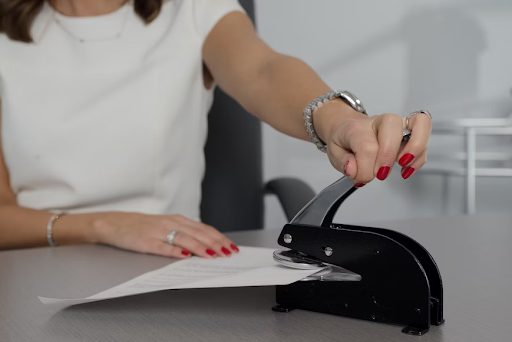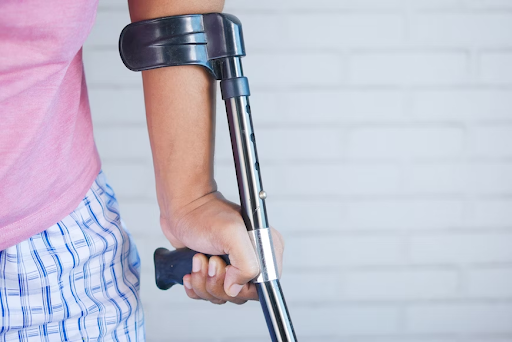Bruges Group Blog
How to Prepare for a Personal Injury Lawsuit
Dealing with a personal injury is an unfortunate and challenging experience, but when legal action becomes necessary, it's important to be well-prepared for the journey ahead. A personal injury lawsuit can arise from various situations, such as car accidents, slips, and falls, medical malpractice, or workplace incidents. Navigating the legal process can be overwhelming, but with the right approach, you can increase your chances of a favorable outcome. From gathering evidence to selecting the right attorney, here's all you should know to build a strong case and protect your rights.
Understanding the Basics of Personal Injury Lawsuits
Before diving into the preparation process, it's crucial to understand the fundamental aspects of personal injury lawsuits. These cases generally revolve around establishing negligence – demonstrating that another party's recklessness or carelessness directly caused your injuries. To prove negligence, working with the attorneys from the Blumenshine Law Group can help determine the course of your case. By familiarizing yourself with legal terminology, the statute of limitations, and the types of damages you might be entitled to, you'll be better equipped to communicate effectively with your attorney and comprehend the progress of your case.
The strength of your case largely depends on the evidence you present. Begin by collecting relevant documents such as medical records, accident reports, photographs of the scene, and any correspondence with insurance companies. Witness statements can also play a pivotal role, so reach out to individuals who can provide unbiased accounts of the incident. Organize these materials meticulously, creating a chronological record that tells the story of your injury, its impact on your life, and the financial losses you've incurred.
Choosing the Right AttorneySelecting an experienced personal injury attorney is perhaps the most critical decision you'll make during this process. Seek out attorneys who specialize in personal injury law, possess a track record of successful cases, and demonstrate a genuine commitment to your well-being. Consultations are often free, so take advantage of these meetings to assess the attorney's communication style, expertise, and compatibility with your needs. A skilled attorney will guide you through legal complexities, negotiate with insurance companies, and represent your best interests in court.
Crafting a Strong Case StrategyCollaborate closely with your chosen attorney to develop a robust case strategy. This involves outlining the key arguments, identifying potential counterarguments, and anticipating the opposing party's tactics. Your attorney will help you understand the nuances of the legal process, such as discovery (exchanging evidence with the other party), depositions, and potential settlements. Being proactive and adaptable in your approach can increase the likelihood of achieving a favorable resolution, whether that's through negotiation or litigation.
Managing Expectations and Emotional Well-beingAs you prepare for a personal injury lawsuit, it's essential to manage your expectations and prioritize your emotional well-being. Legal proceedings can be lengthy and demanding, potentially causing stress and frustration. Your attorney will guide you through the process, but it's crucial to remain patient and realistic about the timeline and potential outcomes. Keep in mind that while seeking compensation is important, your overall health and recovery should remain paramount. Engage in activities that reduce stress, maintain communication with loved ones, and consider seeking professional support if needed.
Documenting the Impact of the InjuryTo strengthen your case, meticulously document the physical, emotional, and financial impact of your injury on your daily life. Maintain a detailed journal describing your pain levels, limitations, and any emotional distress you experience. Additionally, keep track of medical expenses, therapy costs, lost wages, and any other financial losses resulting from the injury. These records not only provide evidence of the extent of your suffering but also contribute to calculating the appropriate compensation you should seek.
Exploring Settlement OptionsWhile litigation is one path to resolution, exploring settlement options is often more efficient and less adversarial. Mediation and negotiation can lead to a mutually agreeable outcome without the need for a courtroom trial. Your attorney will guide you through settlement discussions, ensuring that any proposed agreements align with your best interests. Be open to compromise, but also stand firm in pursuing a fair and just resolution that adequately addresses your needs and losses.
Preparing for a personal injury lawsuit is a multifaceted process that demands a combination of legal expertise, emotional resilience, and meticulous documentation. By immersing yourself in understanding the legal foundations, gathering compelling evidence, collaborating closely with a skilled attorney, and managing your expectations, you equip yourself to navigate the complexities of the legal journey. Remember that your well-being remains a priority; take steps to care for your emotional health and document the true impact of your injury. Whether through litigation or settlement, the end goal is to secure the compensation you deserve and pave the way toward your physical and emotional recovery.
Contact us
246 Linen Hall, 162-168 Regent Street
London W1B 5TB
Director : Robert Oulds MA, FRSA
Founder Chairman : Lord Harris of High Cross






